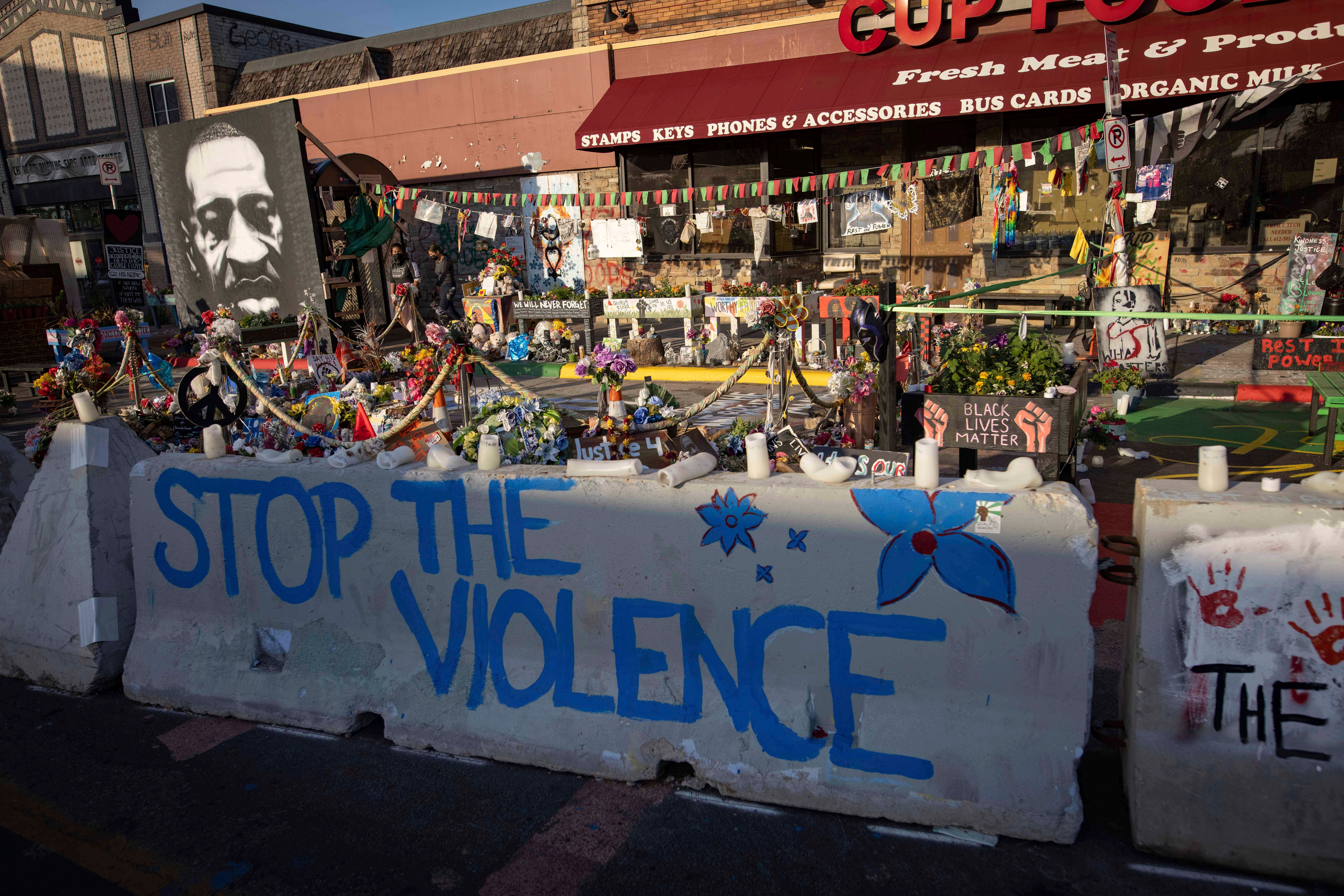Deputies who fatally shot man in Minneapolis were undercover
State investigators say the two sheriff’s deputies who shot and killed a Black man during an arrest attempt by a U.S. Marshals Service task force in Minneapolis were working undercover at the time so state their names will not be released

Your support helps us to tell the story
From reproductive rights to climate change to Big Tech, The Independent is on the ground when the story is developing. Whether it's investigating the financials of Elon Musk's pro-Trump PAC or producing our latest documentary, 'The A Word', which shines a light on the American women fighting for reproductive rights, we know how important it is to parse out the facts from the messaging.
At such a critical moment in US history, we need reporters on the ground. Your donation allows us to keep sending journalists to speak to both sides of the story.
The Independent is trusted by Americans across the entire political spectrum. And unlike many other quality news outlets, we choose not to lock Americans out of our reporting and analysis with paywalls. We believe quality journalism should be available to everyone, paid for by those who can afford it.
Your support makes all the difference.The two sheriff's deputies who shot and killed a Black man during an arrest attempt by a U.S. Marshals Service task force in Minneapolis were working undercover at the time so their names will not be released, state investigators said Wednesday.
Winston Boogie Smith Jr., 32, of St. Paul was killed last Thursday as authorities were trying to arrest him on a weapons violation in Minneapolis' Uptown neighborhood. The U.S. Marshals Service said he was wanted for allegedly being a felon in possession of a firearm and that Smith, who was in a parked vehicle, didn’t comply and “produced a handgun resulting in task force members firing upon the subject.”
The Minnesota Bureau of Criminal Apprehension has said evidence indicates Smith fired his gun — a handgun and spent cartridge were found inside the car. The Hennepin County medical examiner said Smith died of multiple gunshot wounds.
Last week, state investigators said two sheriff’s deputies — one from Hennepin County and one from Ramsey County — were the officers who fired their weapons, striking Smith. Investigators said Wednesday that both agencies said their deputies were working undercover. State law bars releasing the identities of undercover officers.
“I don't care if he's undercover. When someone is killed, the name of that person who killed him should be made public,” said Jaylani Hussein, executive director of the Minnesota chapter of the Council on American-Islamic Relations. “We don't have secret police here. Our government's only accountability is transparency.”
Officers from the Anoka County Sheriff's Office, the Minnesota Department of Corrections, U.S. Immigration and Customs Enforcement and the U.S. Marshals Service were also part of the task force during the arrest attempt, the BCA said.
The BCA also said it is unaware of any video of the incident. Investigators said there is no body camera or squad camera footage, and they are unaware of surveillance video. The Associated Press left messages this week with the owners of the parking ramp where Smith was shot to see if any security video exists, and those messages were not returned.
The lack of body camera footage has raised questions in Minnesota, as Smith's family members and activists continue to demand transparency.
“This all does not add up,” Hussein said, adding that secrecy and lack of information erodes public trust. He said fundamental change is needed at all levels of government.
Local officials say the deputies were assigned body cameras, but were told by the U.S. Marshals Service that they could not use them, despite an October change in Justice Department policy that would have allowed them to be used. The issue led the Ramsey County sheriff to pull his deputies off the task force until body cameras are authorized.
This week, Deputy U.S. Attorney General Lisa Monaco ordered Justice Department law enforcement officers to wear body cameras when making planned arrests or serving search warrants. The directive orders the heads of the Marshals Service, FBI Drug Enforcement Administration and the Bureau of Alcohol, Tobacco, Firearms and Explosives to develop body-worn camera policies within 30 days.
The fatal shooting comes as Minneapolis has been on edge since the death of George Floyd just over a year ago, and the fatal shooting of Daunte Wright by an officer in nearby Brooklyn Center in April.